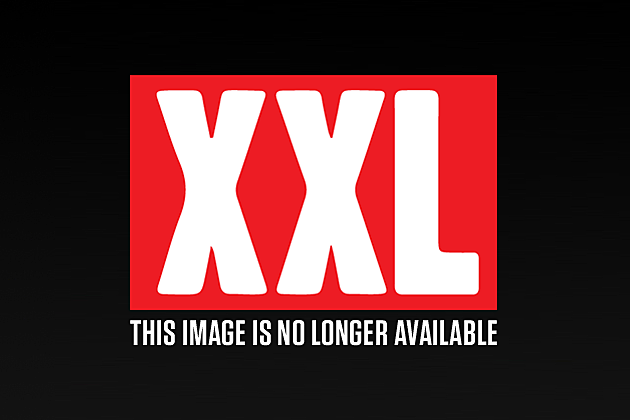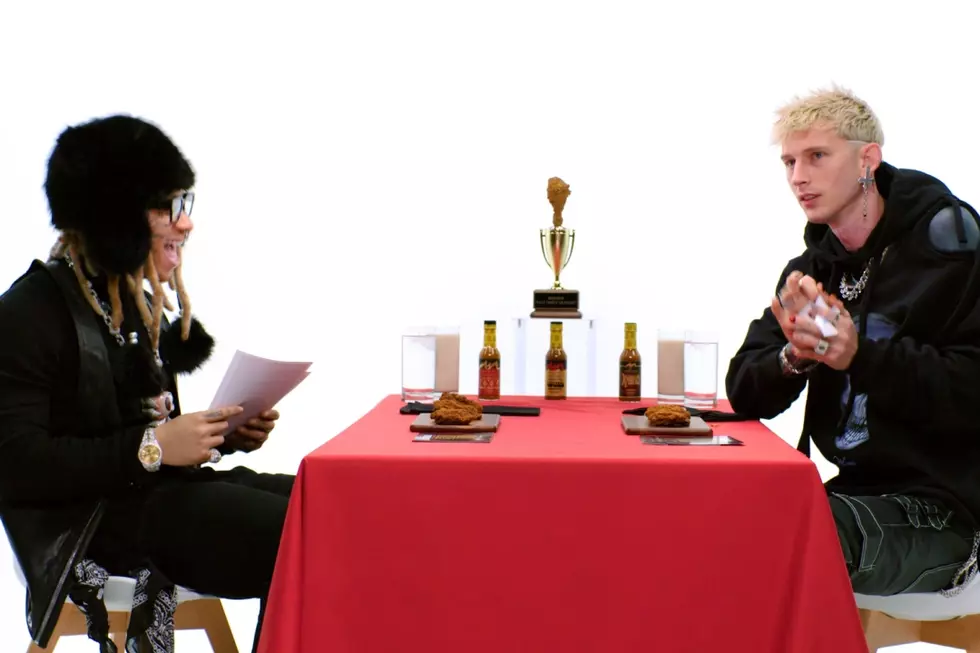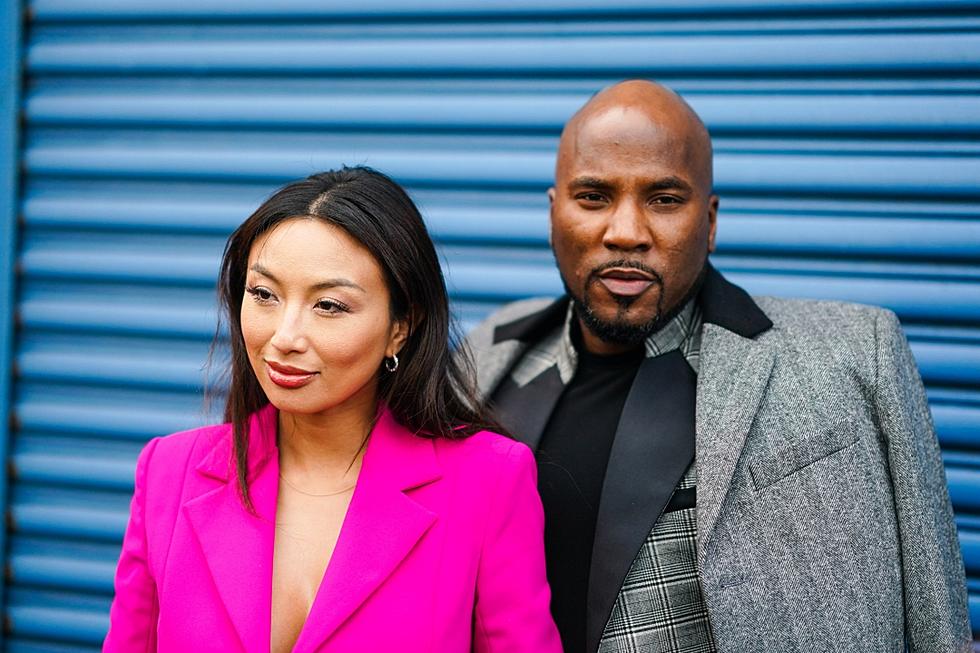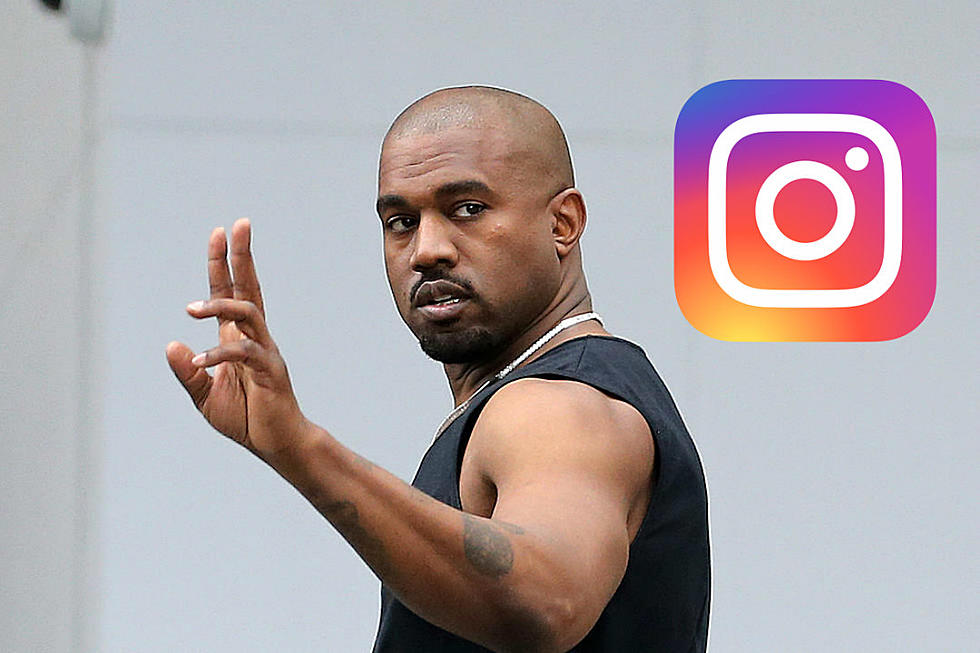Talib Kweli
Touching Everything
 There’s no doubt Talib Kweli can hold his own, but the Brooklyn MC has also been half of a couple of hip-hop’s most prolific duos. He first flaunted his skills with fellow Brooklynite Mos Def on 1998’s Black Star and with producer Hi-Tek on 2000’s Reflection Eternal. Three solo albums deep, Kweli is still highly regarded in many circles, even while his commercial sales have failed expectations, particularly 2004’s The Beautiful Struggle. Last year, he tacked his Blacksmith imprint (a venture with longtime manager Corey Smyth) onto Warner Bros., bringing indie artists like Jean Grae and Phil the Agony. Before releasing his next effort, Ear Drum, Talib is offering the Blacksmith mixtape Blacksmith: The Movement, and his latest album, Liberation, is a 10-track Internet-only collaboration with Oakland beatsmith Madlib. Talib spoke to xxlmag.com about his recent projects, his Blacksmith movement and how he absorbs the criticism.
There’s no doubt Talib Kweli can hold his own, but the Brooklyn MC has also been half of a couple of hip-hop’s most prolific duos. He first flaunted his skills with fellow Brooklynite Mos Def on 1998’s Black Star and with producer Hi-Tek on 2000’s Reflection Eternal. Three solo albums deep, Kweli is still highly regarded in many circles, even while his commercial sales have failed expectations, particularly 2004’s The Beautiful Struggle. Last year, he tacked his Blacksmith imprint (a venture with longtime manager Corey Smyth) onto Warner Bros., bringing indie artists like Jean Grae and Phil the Agony. Before releasing his next effort, Ear Drum, Talib is offering the Blacksmith mixtape Blacksmith: The Movement, and his latest album, Liberation, is a 10-track Internet-only collaboration with Oakland beatsmith Madlib. Talib spoke to xxlmag.com about his recent projects, his Blacksmith movement and how he absorbs the criticism.
Talk first about this project you did with Madlib. Was it always intended as an online-only album, or did it start out differently?
My original plan was to give it out at shows. But when I started working on Ear Drum, I had about 400 beats from Madlib. I was like, “I can’t possibly put all these beats on my album,” so [I thought about] doing an album with him. Then I was like, “I can’t do that, ’cause a lot of those songs have samples in them, and Madlib is real hard to get in touch with.” I was like, “The only way it would work is if I just did it, recorded it and gave it out for free.” This way, I won’t have to worry about sample clearance, and I wouldn’t have to worry about tracking Madlib down.
You’ve worked as a duo with Mos, Hi-Tek and now Madlib. What made you want to work with him, and why do you see working as a duo as a benefit?
A lot of the classic albums in hip-hop—Pete Rock and C.L. Smooth, Main
Source Breaking Atoms, any Gang Starr album—are handled by one producer. Only a handful of producers can handle a whole album. Like, Erick Sermon is someone who’s done whole albums for himself, EPMD and Redman, and he hasn’t gotten a lot of props for it. Hi-Tek, Dr. Dre, 9th Wonder. And, also, Madlib is just a very consistent producer. When Jay Dilla passed, I was in a similar situation with him. I had a whole bunch of beats, and I didn’t know which ones I was gonna use. All these wonderful dudes in my life, I just want to take the opportunity to work with them when I can. As I’ve grown as a musician, I’ve experimented with different sounds and wanted to try different things, and my fans would always roll with me. Sometimes they think I’m bugging out, but that Madlib sound is the sound that I think they’ll appreciate me on.
How do you think Liberation will benefit your actual album?
Well, the selfish part of me is saying that, “Look, if I gave you a free album, the least you could do is buy my album.” But at the same time, I’m trying to make music that touches people, whether you listen to hip-hop or not. Sometimes when you do that, you lose people in the process, because you’re trying—I don’t care whether or not you think I’m the best MC. I already know that I am, so I’m not trying to prove that on my record. And, so, the Madlib album was a way for me to say, “Okay, I still can rap circles around your favorite MC. Matter of fact, I’m so good at that, I’ma do it and give it to you for free. But now I need you to take this journey with me when I’m trying to do it [on a major-label album].”
You also said that about Right About Now, your Koch album.
Yeah, Right About Now, the mixtapes, all that. Because I realize there’s a certain segment of my fan base that I can’t forget about. I’ve lost some of them on Beautiful Struggle. I don’t make music for the fans, so I’m gonna continue to make my albums the way I want to make them. I’m not gonna listen to your suggestions about what I should be doing. But you want to hear me on some gully shit? You wanna hear me on some underground shit? You wanna hear what you’re used to me doing? Then here’s Right About Now, here’s Liberation, here’s the mixtapes. That’s for you. Because those fans—I did that for two albums, and they didn’t run out and buy them. Neither one of ’em were platinum or gold.
Do you feel kinda bitter about that?
Not bitter, [but] I do feel like it’s seductive to get caught up in what you think the fans want from you. That’s how a lot of artists fall off, and I’m very careful not to do that. If I [was] the same artist on Black Star that I was on Reflection Eternal that I was on Quality, I would be very boring and people wouldn’t be challenged. And so I have to make sure, as I get older in this game, my music remains challenging. If the same kids who loved Reflection Eternal love my new album and that’s it, then I haven’t been doing my job, ’cause I haven’t been growing.
How do you feel you’ve improved, either lyrically or otherwise?
I feel like I’m definitely stronger lyrically. I feel I’m more confident, more in command of the microphone. I feel like my range is better, as far as what I’m able to rap on, the subject matter I touch. I feel like my resources have increased. I can work with any producer I want to work with.
 How much do you pay attention to the critics of your music?
How much do you pay attention to the critics of your music?
I pay attention to the constructive criticism as much as possible, ’cause I believe that it makes [me] better. I read album reviews, and I actively go out and search for them, and when someone tells me they saw a review, I want to read it. And that might be a vain part of me, as well—to see what people are saying. People are real passionate about my music, a lot of my fans, so sometimes they’re so passionate that if I do something they don’t like, they’re equally passionate about how much they don’t like it. And so I get a lot of negative comments from so-called fans. But it drives me to be better.
What do [fans] want you to do that you’re actually working on? What have people said that you’re like, “Maybe I should do that”?
You know, one thing the constructive criticism has helped with has been the shows. I do 250 shows a year, and that’s very draining on my body and on my voice. And when you do hip-hop events, you’re not doing places that have great sound systems, so I’ve developed a habit of wanting to go hard. Plus, my music is considered soft and conscious and smooth, and sometimes that doesn’t play well for the stage. So I come out real rowdy and loud and screaming. It started changing the way I sounded onstage, and I started noticing criticism of that, like, “I don’t like the way you sound onstage.” So I went to a throat doctor, and she gave me some tips on how I can be better, and that’s something I’m still working on, but I feel better onstage, and I’ve seen the results. ’Cause now those same Web sites that were saying that, I’ve noticed people saying, “Oh, his live show is back to where it was.”
As far as Ear Drum, you said it’ll be a different project with different influences, compared to Liberation. How so?
That’s a little bit misleading. Madlib is doing three, maybe four tracks on Ear Drum, as well as Pete Rock, Hi-Tek, DJ Khalil—these are people who embody that sound that people have come to know me for. But I also have a record with Justin Timberlake. I have a record with Norah Jones. UGK, KRS-One [are] on the record. Liberation is sort of like [no-holds-barred]. This one, there’s definitely some rules to it. Like, I’m not putting a beat on there if it doesn’t sound right.
Can you update us on what’s going on with Blacksmith?
Strong Arm Steady has a mixtape that’s doing real well. Jean Grae—other than the song we have on the Web site, “The One,” which we released a couple months ago, I don’t know if Jean has anything new out, but Jean always has a video on YouTube. She makes her own videos. Jean is real prolific and very easy to work with. My album is the jump-off, so as soon as we get my album out, we’ll have the other albums on schedule. Jean, her album’s called Prom Night. Strong Arm is Bombs and Hammers.
Do you think hip-hop is dead?
I think hip-hop is in a wonderful state. I think the problem is that, when people make judgments about hip-hop, they’re only talking about the commercial, top-ten hip-hop that you hear on radio. I don’t even separate the terms—I look at hip-hop and rap [as the same]. We all grew up listening to Run-D.M.C. No matter how many times you say, “I’m just a hustler, not a rapper,” nigga, you know that you love rap, so stop frontin’. I appreciate the fact that you got skills selling drugs, but don’t say that you don’t love rap, you know. We all love it. I think the musical landscape of what you see on the radio and hear on the radio seems bleak, but I’m blessed to really live hip-hop. So my interest in hip-hop goes far beyond BET or MTV, or even XXL, for that matter. Even though I pay attention to all of it.
Do you think fans just accept what they’re fed or that they should expect more from their rappers?
One thing that’s hard for a progressive artist to realize, and what makes them bitter, is that the average fan doesn’t want to turn on the radio and hear Talib Kweli talk about the state of the union. The average fan turns on the radio and wants to hear a song about shaking ass or going to a party, something that’s gonna help keep their minds off the problems they’re dealing with. So as progressive artists, we can’t stick our noses in the air and think everyone’s supposed to listen to conscious music just because we happen to like it. I feel I’m dope enough that I can spit a rhyme that has gems and jewels in it and the average head will still love it, just ’cause the rhyme is dope. Sometimes I hit the mark. Sometimes I don’t. But nothing’s gonna make me stop trying for that.
More From XXL









